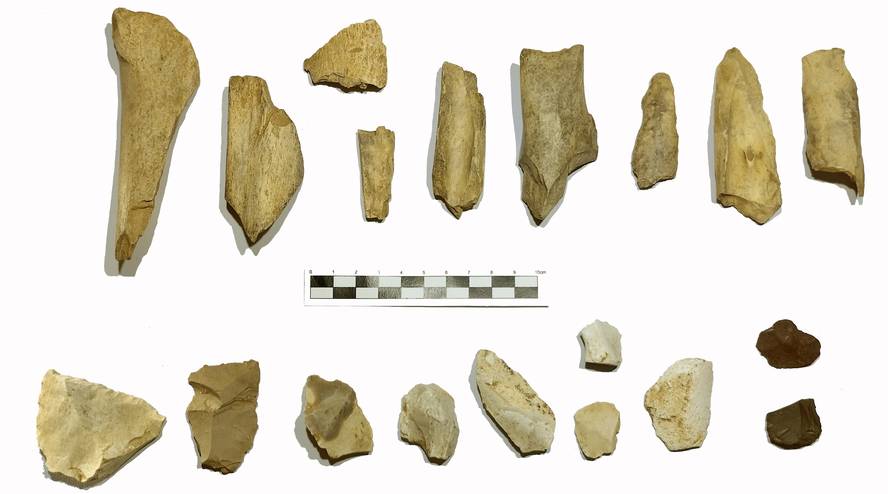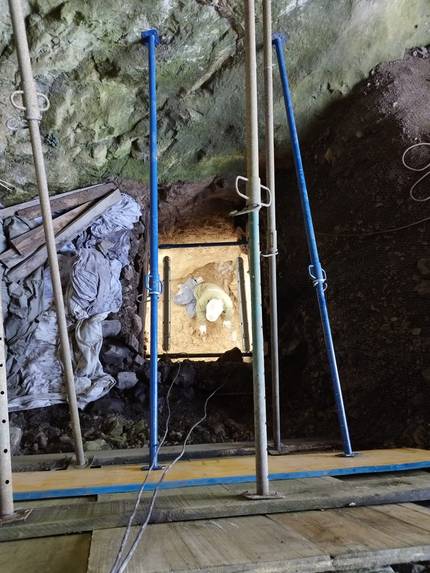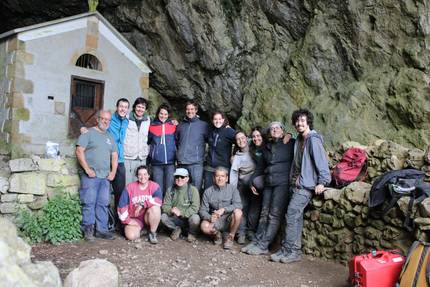Neanderthal remains found in San Adrián cave


The archaeologist of Aranzadi, Jesús Tapia Sagarna, has been one of the excavation directors, according to which they already suspected that they could find remains of Neanderthals. “San Adrián has always been the cave of casual findings. In the main step, with so many buildings and movements, you couldn't tell if there was anything. At first, therefore, we work on cleaning and probing. There were medieval references, and the first searches focused on it. But in those first surveys, in 2011, remnants of occupation of the Bronze Age were found. Among them were some songs similar to those of the Bronze Age. Our hypothesis was that under the cloak of the Bronze Age there would be older ones and that in the Bronze Age, by making the holes, they would surface.”
Returning to this hypothesis and concluding the excavation of the Bronze Age, new surveys were carried out and remains of the last Ice Age were found: Madeleine and Azil (between 13,000-14,000 years). “This puts us in front of another scenario where the climate was then much cooler than the current one, it was a relatively warm moment but within the glacier. And those men were hunter-gatherers, nomads, and we proved that they were also up to the height,” Tapia explains.
In addition, when they cleaned the wall, they realized it was much higher than they thought. 7 metres. “Therefore, the cave filling reached a much deeper depth. And at the foot of the wall there appeared a pair of pieces of characteristic odor: they were pieces of volcanic stone, but their technique was not that of modern man; they fled from the Neanderthals. So we took the track.”
Testimony of Neandertal
In the following years excavations were carried out in the Azil and Madeleine period, and another deeper survey was carried out last year. Tapia says: “In Haisera, in the lower layers of the Madeleine period, we found nothing, but we saw that there were lands of different characteristics, related to climate variations. In fact, in the Spleen of the Ice Age, there were cooler and more temperate times. And this year, as soon as we begin, we have touched a layer of temperate time, with the bones of a few small animals, with the prey left by birds… and among them, some clearly trapped by man.”
Although the species to which they belong has not yet been determined, Tapia believes that they were the median mammals: deer, wild… And it is evident that they were scraped and broken by man to remove the meat and extract the marrow. Soon after they began to draw some stone tools, with no trace of modern man's techniques.
This layer was very thin and when you start searching underneath it, other pieces appear. “A scraper appears, for example. In total, they do not reach twenty pieces, but at least two are undoubtedly working with the technique we know of the Neanderthals. They belong to the Moustier period”, matiza Tapia. He wanted to make it clear, yes, that they have not found human bones.
They still have a lot to do, both in depth and in width, and they expect more information. In any case, the finding of Neanderthal remains at such a location is significant, indicating a deep knowledge of the environment. In fact, the San Adrián cave is not a temperate refuge, but is a thousand meters high and is a step. “The Neanderthals would know, they would go up to the other side. That is, they had a strategic knowledge of the environment, they knew the possibilities of the place,” Tapia said.
In this sense, he stressed that, contrary to what was previously believed, they were not so different from us, with intelligence and capacity” We do not know why they disappeared, but it was not because they were very scarce on our part”. In Tapia's opinion, this puts our species in front of the mirror, because if they were lost, maybe we too are in danger.






